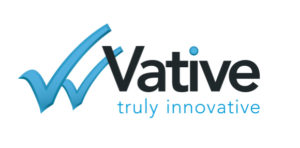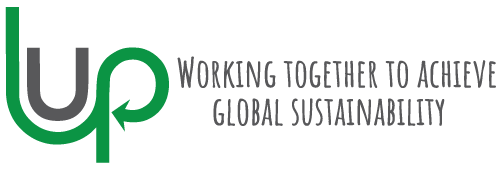What are the common values between LUP & Vative? And how to make bigger impact for businesses through management?
Meet Theo Pappas, Vative’s CEO. Theo is a self-driven businessman encompassing over 15 years of experience across various leadership roles within the consulting and education space.

It’s the start of 2020 a new decade! What does the next decade look like in Continuous Improvement and for Vative specifically what lies ahead?
Theo Pappas : Where has the decade gone? I came on board with Vative in 2010, blinked and now it is 2020 already!
We’ve seen a lot of maturity in industry and what I mean by that is there has been a boarder industry uptake in the deployment of Continuous Improvement (CI) strategies. There is a far greater respect and adoption for implementing Continuous Improvement which not all that long ago was primarily reserved for businesses in the manufacturing industry. Even though Australia’s economy has global record of growth, businesses including the public sector are consistantly having their purse strings tied and needing to find innovative ways to do more with less.
Vative’s capacity stretches across a myriad of industries, from the CI foundations of Manufacturing through to Construction and across all levels of Government, Vative’s 13 years in business has just about implemented Continuous Improvement in every industry out there, though we’ve experienced a solid emergence in the Healthcare and Agriculture sectors enough to divisionalise dedicated teams across those industry sectors, no doubt over the coming years we’ll have other specialised dedicated industry divisions focusing and tailoring to the specific sector it services.

Continuous Improvement will no doubt continually evolve as it always has, the nest of methodologies it possesses such as Lean, Six-Sigma, Agile will in many industries have its lime light over the coming decade. All industries tend to want to get on the next big thing that is driving one company’s success and the fear of missing out on that journey sometimes drives the purpose of embarking on a Continuous Improvement strategy, which is every reason that it is not the right purpose.
Vative is turning 14 in 2020 and in the short 14 years it has helped over 400 businesses and many thousands of individuals gain skills in the application of Lean Six Sigma. The wisdom we’ve learnt over the time we’ve been in operation is that business transformation requires the right intent, a devised strategy and the most important antidote to ensure its long-term success…. Leadership. Our extensive experience and data driven research across a selection of 47 organisations Vative has engaged with indicates that the proactiveness and mindset of the Leadership team is consistently the defying factor to a successful outcome in the application of any Continuous Improvement strategy, therefore businesses seeking to embark on such a journey must ensure there is a great deal of emphasis to engage the leadership first. So from this very nature, we at Vative move into the next decade with a distinct and unique business transformation model. Our 5-phase methodology in establishing a continuous improvement culture is what defines Vative’s capability and point of difference to the market. Our experience and history in business transformation is how we’ve devised a benchmark approach in helping organisations increase productivity, profitability and growth.
How do you see LUP’s vision and our focus on sustainability being able to fit in and work best with the vision for Vative?
Theo Pappas : There are synergies that tie the two oganisations quite well, aside from being ShareTree social enterprises, both organisations ultimately have a key focus for their clients and that is simply the art removing waste, whether that be waste in a form of a process or decommissioned assets heading to landfill, waste comes in many shapes, sizes and types though it is always the same desired outcome and that is to eliminate them all.
As social enterprises, by nature we’re both seeking to make an impact on the world, our business model is designed to make other businesses thrive and particularly here in Australia where we’re always obsessive to keep industry and jobs alive by driving businesses to develop continuous improvement cultures. Our customers come from all types of industries and we’re always finding their entire supply chain have wastes ridden throughout it and generally their assets in forms of large machinery or high-volume consumables at the end of their life cycle tend to be quite the expensive wastes.
We’re excited to have Noreen Kam and Michael Brown available to Vative clients as a Supply Chain experts to help implement waste reduction and cost saving strategies via the LUP circular economy models. This brings an exciting new unique capability to our network of customers never available before.
What do you see are the next biggest opportunities for Vative & LUP in order to be able to make the biggest impact for businesses?
Theo Pappas : Someone once told me 1 + 1 = 3, it’s a great analogy and rings true in this context. The meaning behind this analogy is that partnering and combining capabilities makes more useful to service clients’ needs, if the collaboration between the two organisations has a common element, combining alike (though non-competing) services brings upon a greater impact.
It is an exciting and fresh partnership we’re quite pleased to welcome the capabilities of the LUP team in the field of Supply Chain Management Consulting to the Vative suite of services.
There is certainly an opportunity to educate industry on innovative sustainability strategies and business practices. We’re Australia’s only training and consultancy provider offering the suite of competitive systems and practices programs, from foundational training right through to highly specialised master level programs at a Graduate Diploma. These programs are influenced under the sustainability training framework and it would be exciting future to enable LUP Global through our Academy arm to educate and empower businesses with skills in designing and leading sustainable deployment strategies.
Education and Training is where a lot of my passions lie and can certainly foresee an opportunity to enable a series of sustainability-based training packages for businesses to learn and implement the LUP Global mission. It is through education and application will give the planet and the businesses that occupy it the biggest impact for the future.

